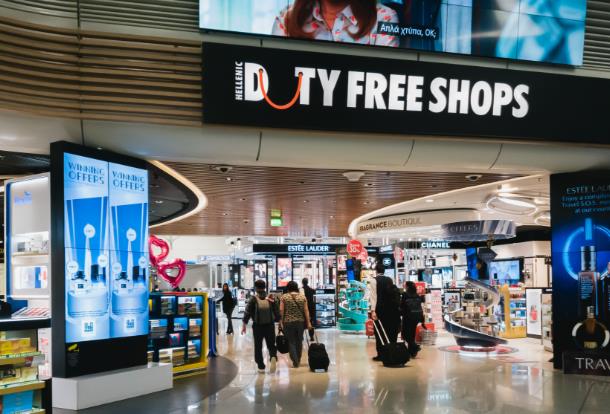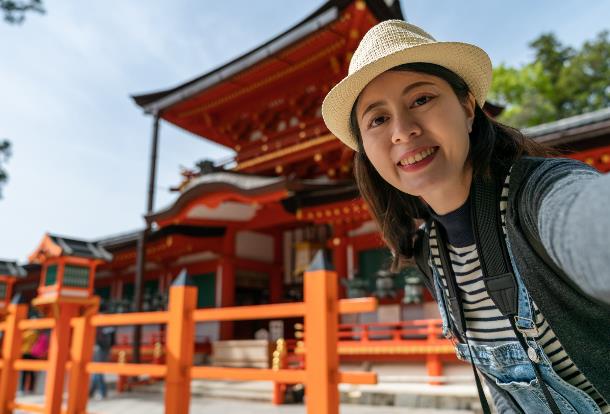Key developments:
* Chinese cities curb overseas arrivals
* Airfares from Korea to China rise
* IHG, Hilton, Marriott extend memberships
* Expedia cuts 3,000 jobs
Worldwide updates:
Chinese cities curb travel from overseas
>> Some Chinese cities have begun to restrict arrivals from overseas, as growing outbreaks elsewhere prompt the country to enact curbs similar to those facing its own travelers. The moves signal that the epidemic’s momentum has shifted outside of China.
The coastal city of Weihai said all people arriving from Japan and South Korea would be required to undergo 14-day quarantines in designated hotels. The adjacent city of Yantai said those who’ve entered China for short-term business and tourism visits would be required to stay in selected hotels.
Thailand’s tourism income tumbled
>> A slump in Thailand’s foreign tourism income underlines the damage being inflicted on its economy. Receipts tumbled 3.6% in January from a year earlier to USD 6 billion), dragged down by a 10% slide in outlays by Chinese visitors.
The unease caused by covid-19 is expected to drag down Thai tourism for more than six months, triggering airlines to slash ticket prices to steer the market, while Nok Air and Nokscoot cut pilots and cabin crew to save cost.
Korean Air cabin crew member tests positive
>> A cabin crew member of Korean Air has tested positive for the coronavirus, the South Korean airline said on Tuesday, according to Reuters. That has caused the airline to shut its office near the Incheon International Airport at the city’s capital Seoul.
Airfares from South Korea to China shoot up
>> Airfares from South Korea to China have spiked amid a growing coronavirus outbreak on the southern half of the Korean peninsula, travel agency websites show.
The airfare surge is partly due to recent flight cancellations. Also, a growing number of Chinese workers in South Korea are trying to get back to China as soon as possible.
The coronavirus has killed eight people and sickened more than 830 others in South Korea, a 16-fold rise in just five days.
Singapore Airlines freezes hiring
>> Singapore Airlines has frozen hiring for all ground positions, in response to the COVID-19 outbreak, it said in a statement.
The flag carrier added it will implement any additional measures needed, but “will not do anything that compromises the SIA Group’s long-term competitiveness.”
Airline stocks tumble as virus spreads outside China
>> Airline stocks fell Monday as fears about the spread of the coronavirus beyond China added to worries about travel demand and the broader economy, despite a drop in fuel prices.
American Airlines dropped 8.5% to USD 25.45, a more than four-month low. Delta Air Lines lost 6.3% to end at USD 54.23, lowest price in nearly four months, while United Airlines ended off 3.3% and Southwest Airlines fell 4.3%.
More than 200,000 flights to, from and within China have already been canceled because of the virus, according to aviation consulting firm Cirium.
United Airlines abandons 2020 profit forecast
>> United Airlines withdrew its 2020 profit forecast, citing the financial impact of the coronavirus outbreak in China. The uncertainty surrounding the virus means United can’t guarantee its earlier goal of earning USD 11-13 a share this year.
United had the most service to China among US airlines, with 12 daily flights. It has removed that flying from its schedule through late April.
IHG, Hilton, Marriott offer membership extensions
>> Intercontinental Hotels Group (IHG), Hilton and Marriott International are all offering membership tier and points status extensions for their members from mainland China, Hong Kong, Macao and Taiwan whose travel plans have been affected by the coronavirus (Covid-19) outbreak in the region.
New York hotels bracing for potential impact
>> The coronavirus impact on global travel is sending tremors through New York City’s hotel industry, which was sagging from declining occupancy and revenue even before the China-originated pandemic struck.
All of the hotel business’ key benchmarks — occupancy, room rates and RevPAR — were down through last November compared with the first 11 months of 2018. The dip occurred despite rising numbers of visitors, which hit a record 70 million in 2019, compared with 48.8 million in 2010. The culprit is oversupply. Due to an ongoing development surge, the city will have 144,000 hotel rooms by the start of 2022, compared with 87,000 in 2010.
Luxury sales could drop by $44 billion
>> The impact of the virus outbreak is likely to reduce industry sales by as much as EUR 40 billion (USD 43.5 billion) in 2020, according to the survey of 28 top executives undertaken by Boston Consulting Group and Sanford C. Bernstein. China is a key market for most luxury firms, and signs that the virus has been spreading more widely are causing jitters to increase.
Expedia cuts 3,000 jobs to simplify business
>> Expedia Group is cutting 3,000 jobs, or 12% of its direct workforce, to simplify the “bloated organization” and return the online travel giant to more disciplined growth. Chairman Barry Diller said the company's costs will continue to come down in the future, beyond the first level of USD 300-500 million.
OYO falls short in Japan
>> OYO fell short in Japan's hotel and apartment markets with about 7,500 rooms, less than 1% of the original target of reaching one million rooms in the country within a year, according to a Bloomberg report.




